“新一代人工智能正在全球范围内蓬勃兴起,为经济社会发展注入了新动能,正在深刻改变人们的生产生活方式。”习大大在贺信中强调,中国正致力于实现高质量发展,人工智能发展应用将有力提高经济社会发展智能化水平,有效增强公共服务和城市管理能力。当晚,《新闻联播》重点播报了这条消息。
何为人工智能?
“人工智能”一词最初是在1956 年Dartmouth学会上提出的。从那以后,研究者们发展了众多理论和原理,人工智能的概念也随之扩展。人工智能(Artificial Intelligence),英文缩写为AI。它是研究、开发用于模拟、延伸和扩展人的智能的理论、方法、技术及应用系统的一门新的技术科学。人工智能是计算机科学的一个分支,它企图了解智能的实质,并生产出一种新的能以人类智能相似的方式做出反应的智能机器,该领域的研究包括机器人、语言识别、图像识别、自然语言处理和专家系统等。人工智能从诞生以来,理论和技术日益成熟,应用领域也不断扩大,可以设想,未来人工智能带来的科技产品,将会是人类智慧的“容器”。
人工智能让我们开始思考以前我们以为理所当然的事情。其研究的是使计算机来模拟人的某些思维过程和智能行为(如学习、推理、思考、规划等)。那我们就是是如何学习的?为什么会推理?为什么会联想?思考是什么?为什么我们会有情绪?为什么我们会有梦想会规划未来?这些机器能做到吗?
专业:Artificial Intelligence
链接:
https://www.ed.ac.uk/studying/postgraduate/degrees/index.php?r=site/view&edition=2018&id=107
课程设置:
Compulsory courses
MSc Dissertation (Informatics)
Informatics Research Review
Informatics Project Proposal
Course options
Bioinformatics 2 生物信息学
Data Mining and Exploration 数据挖掘和勘探
Reinforcement Learning 深度学习
Human-Computer Interaction 人机交互
Algorithmic Game Theory and its Applications 算法游戏理论及应用
Computer Graphics 计算机图形学
Advanced Vision (Level 11) 高级视觉
Automatic Speech Recognition 自动语言识别
Neural Information Processing 神经信息处理
Computational Cognitive Neuroscience 认知神经科学计算
Adaptive Learning Environments 1 (Level 11) 适应性学习环境
Music Informatics 音乐信息学
Robotics: Science and Systems 机器人技术:科学与系统
Topics in Natural Language Processing 自然语言处理课题
Accelerated Natural Language Processing 加速自然语言处理
Formal Verification 形式证明
Machine Learning and Pattern Recognition 机器学习与模式识别
Machine Learning Practical 机器学习实践
Probabilistic Modelling and Reasoning 概率模型和推理
Image and Vision Computing 图像与视觉计算
Principles and Design of IoT Systems 物联网系统的原理与设计
Advanced Vision 高级视觉
Introductory Applied Machine Learning 应用机器学习概论
Introduction to Vision and Robotics 视觉和机器人技术导论
Image and Vision Computing 图像与视觉计算
Algorithmic Foundations of Data Science 数据科学的算法技术
Natural Language Understanding, Generation, and Machine Translation
自然语言理解、生成和机器翻译
Usable Security and Privacy 可用安全与隐私
Bioinformatics 1 生物信息
Natural Computing 自然计算
Neural Computation 神经计算
Artificial Intelligence, Present and Future 人工智能,现在和未来
Introductory Applied Machine Learning 应用机器学习概论
Robot Learning and Sensorimotor Control 机器人学习和感觉运动控制
Advanced Databases (Level 11) 高级数据库
Applied Databases 应用数据库
Distributed Systems (Level 11) 分布式系统
Parallel Programming Languages and Systems (Level 11) 并行编程语言和系统
Parallel Architectures (Level 11) 并行体系结构
Compiler Optimisation (Level 11) 编译器优化
Software Architecture, Process, and Management (Level 11) 软件架构、过程和管理
Computer Networking (Level 11) 计算机网络
Performance Modelling (Level 11) 性能建模
Extreme Computing 计算计算
Randomness and Computation 随机性计算
Secure Programming 安全编程
Introduction to Quantum Computing 量子计算导论
Advances in Programming Languages 编程语言的进步
Computational Complexity 计算复杂性
Computer Algebra 计算机代数
Types and Semantics for Programming Languages 编程语言的类型和语义
Advanced Topics in Foundations of Databases 数据库基础的高级主题
Social and Technological Networks 社会和技术网络
Categories and Quantum Informatics 类别和量子信息学
Introduction to Modern Cryptography 现代密码学概论
The Human Factor: Working with Users 人类因素:与用户合作
Blockchains and Distributed Ledgers 区块链和分布式账本
Text Technologies for Data Science 数据科学的文本技术
Internet of Things Systems, Security, and the Cloud (IoTSSC) 物联网系统、安全与云(IoTSSC)
入学要求:
A UK 2:1 honours degree, or its international equivalent, in informatics, artificial intelligence, cognitive science, computer science, electrical engineering, linguistics, mathematics, philosophy, physics or psychology, plus experience in computer programming.
During your degree you must have completed the equivalent to 60 credits of mathematics that have typically covered the following subjects/topics: Calculus (differentiation and integration), Linear Algebra (vectors and multi-dimensional matrices), Discrete Mathematics and Mathematical reasoning (eg. Induction and reasoning, Graph theoretic models, proofs), and Probability (concepts in discrete and continuous probabilities, Markov Chains etc. )
IELTS Academic: total 6.5 with at least 6.0 in each component












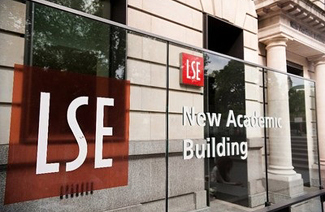 伦敦政治经济学院
伦敦政治经济学院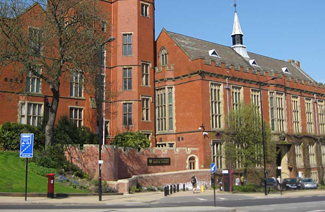 谢菲尔德大学
谢菲尔德大学 曼彻斯特大学
曼彻斯特大学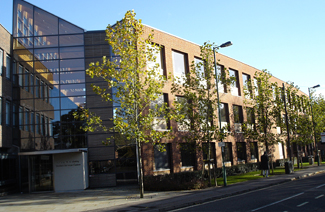 南安普顿大学
南安普顿大学 诺丁汉大学
诺丁汉大学 阿德雷德大学
阿德雷德大学 新南威尔士大学
新南威尔士大学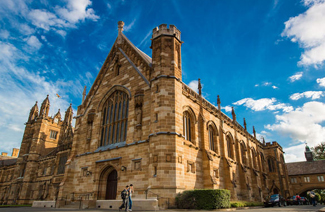 悉尼大学
悉尼大学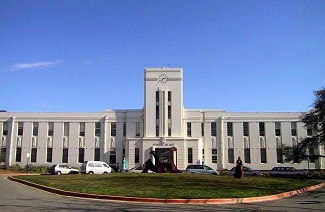 澳洲国立大学
澳洲国立大学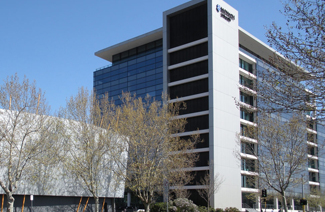 莫纳什大学
莫纳什大学 英国低龄留学
英国低龄留学 留学美国
留学美国 美国生物专业
美国生物专业 美国转学
美国转学 美国留学一年费用
美国留学一年费用 美国艺术留学
美国艺术留学 英国留学生
英国留学生 加拿大留学申请条件
加拿大留学申请条件 留学加拿大
留学加拿大 加拿大金融专业
加拿大金融专业